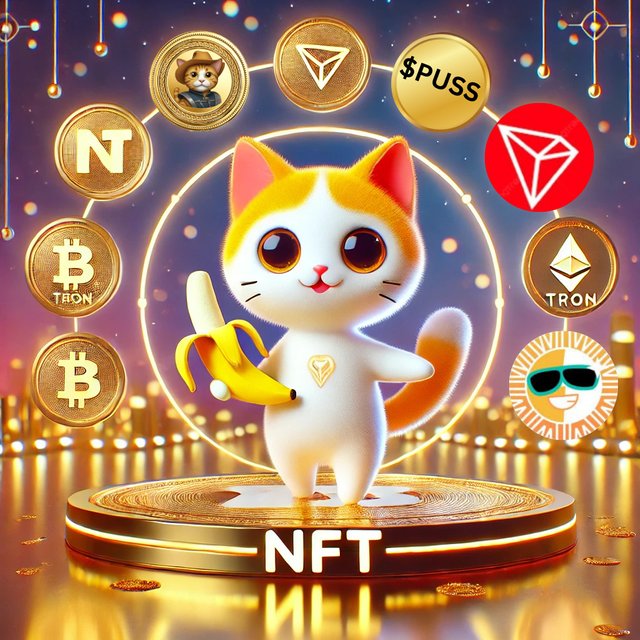The social impact of DeFi projects like Pussfi.
Decentralized Finance (DeFi) has revolutionized the world of finance as it has developed new platforms that are open and accessible to anyone in the world with an internet connection. It is no longer necessary to seek permission from banks in order to conduct transactions. In contrast to traditional finance, Defi is built on the blockchain network and thus eliminates the need for intermediaries by facilitating disintermediation as well as the creation of new financial instruments. Through this, it becomes obvious that Defi is an effective medium of social change, especially in matters related to poverty alleviation and targeting disadvantaged people.
On the other hand, PussFi is a community driven DeFi project under the Puss brand that seeks to promote financial tools and other solutions that can be brought to communities around the world. The initiative has an objective that stretches far beyond memes and allegations, PussFi seeks to place hope in communities and remove them from poverty-stricken areas paving the way for a more prosperous environment within the DeFi ecosystem. A huge number of DeFi projects have failed to leave a mark within the community, their stance has been to exploit and vanish into thin air, but with Puss, marks a new age for the individuals behind the community seeking charitable solutions.
This post focuses on the social transformation which the DeFi projects like PussFi hope to accomplish by following a multi-dimensional approach comprising of ; adjusted focal areas that cover financial inclusion, economic empowerment, support for grassroots initiatives, and transparency in philanthropy. These dimensions show that PussFi is a tailored fit for the needy one in each poverty stricken area.
PussFi's ability to deliver financial services to previously unbanked and underbanked people is one of the most powerful social effects of Defi projects. Why does someone not have a bank account? Because he/she lives in a particular region; doesn’t have identity documentation; or doesn’t have enough credit history or any other number of reasons. PussFi solves these problems with its open access financial tools that require only an internet connection, and digital wallet application.
Take for instance it decentralized lending and borrowing platforms, PussFi users can access credit without middlemen. This is much more important for people, for example in rural areas or economically weak economies, who are unable to obtain such loans from ordinary lenders. With the provision of these services, PussFi gives its users the capacity to establish small enterprises, invest in education, or enhance their living conditions and thus economic development at the bottom of the pyramid.
Further, PussFi’s microtransaction- friendly environment gives room for even tiniest financial activities to be worthwhile. Users are able to send and receive bit amounts of value without high transaction fees, thus enhancing local trade and commerce. The enabling environment goes a long way in ensuring that the gap between the financially privileged and the underserved.
PussFi, like many other DeFi initiatives, allows people to create chances for wealth and takes control of their finances. Most mechanisms in traditional finance encourage the concentration of wealth to a selected few, in contrast, income opportunities are provided through decentralized finance protocols in a more equitable system. Some Passive income is earned by providing the opportunities for yield farming, staking and liquidity mining to the users who employ PussFi. For example, users can stake PussFi tokens in liquidity pools where they can earn rewards for taking assets off the market. This is relevant for many people living in places with less jobs because this helps them create wealth in a different setting. Meanwhile, within the PussFi ecosystem, users can assist in liquidity and stability for the platform while earning money through PussFi as their asset appreciates. Also, the focus of PussFi on NFTs (non fungible tokens) provides the artists and creators with new economic opportunities. Through PussFi, artists can create new works of digital art that users can mint, buy, sell, and display in galleries, thus using PussFi to stimulate creative industries and giving artists the opportunity to profit. The combination of these two areas of NFTs and DeFi increases economic empowerment and also urges more innovations, as well as foster more creativity. In the case of social projects, PussFi’s community gives it the capacity that is needed for supporting grassroots initiatives. Because DeFi is based on a network of communities, development funding does not require any conventional third parties, that is more resources are availed and put into the right use. As an illustration, it can be envisaged that PussFi would allow local people to solicit for funds on some development projects like constructing schools, or health centres, or provision of clean water. Thanks to the smart contracts, the parameters of each project and funding objectives are readily met without risking the probability of corruption or mismanagement ever occurring. PussFi strengthens self-reliance and collective action by encouraging the communities to spearhead their development. Lastly, PussFi’s banner on social issues for example through donating part of transaction fees for selected social causes, also serves to increase social impact. The programs create a chain of activities from platform activity to community benefits in that participation of users in the ecosystem leads to desirable changes in the society. Traditional philanthropy is faced with many problems including a lack of transparency which often leads to funds being mismanaged which further erodes the trust of donors. Hopefully, PussFi and other similar DeFi projects may solve the issue by improving the transparency and trust of donation systems through leveraging blockchain. Using PussFi, donors do not only make donations, they also track their donations in real time on the system and ensure that the donations are used where they are supposed to. One example of how this is done is through smart contracts, whereby the donations of many people can be distributed to the needed case automatically through the contracts and thus there are no middlemen and less administration work. Such transparency helps to build trust among the users, who may encourage more users to take part in the charity. In addition, PussFi has a decentralized governance structure where the community is able to vote on what needs or projects need supporting. In this way the community does not waste funds by donating to things they do not care about. Through marrying transparency with inclusivity, PussFi raises the bar for what ethical philanthropy with accountability should look like. PussFi is undoubtedly one of the remarkable DeFi projects where we can see how blockchain technology can be useful to solve social problems and enhance communities. PussFi points to the opportunities that decentralized networks offer in that they promote inclusivity, economic opportunity, grassroots support, and transparent charity. PussFi demonstrates how DeFi can be much more than restricting to a mere financial revolution, but rather, a creation of an ecosystem that is accessible, innovative and beneficial to the society. With the onslaught of projects such as Puss Fi, the amalgamation of blockchain technology and social impact will change the face of the communities in the decentralized space.

.jpg)

Upvoted! Thank you for supporting witness @jswit.
https://x.com/frank_anayo/status/1868429096742740241?t=Zbc6Q_I1odBAt_PuakgTZA&s=19
Note:- ✅
Regards,
@jueco